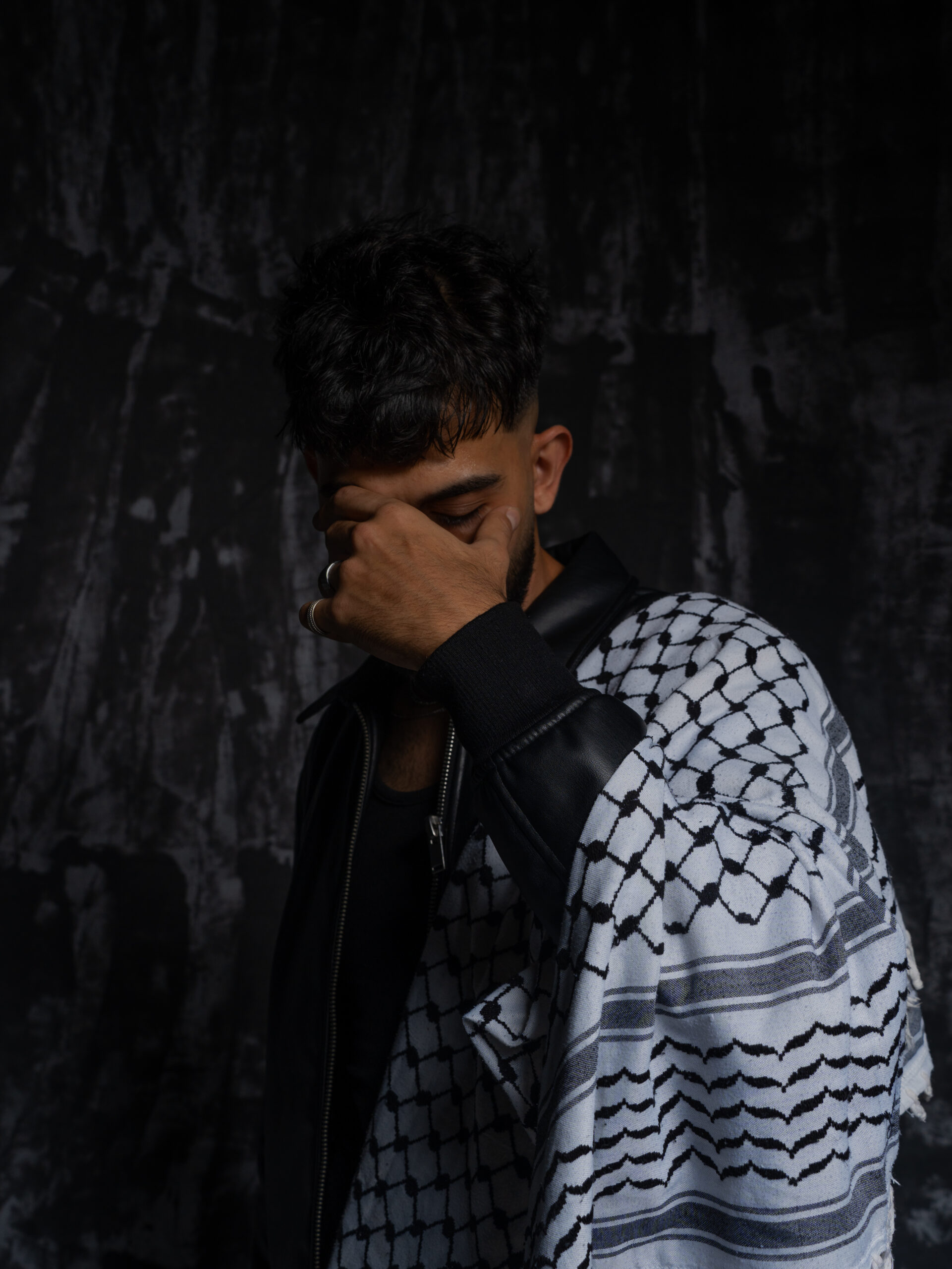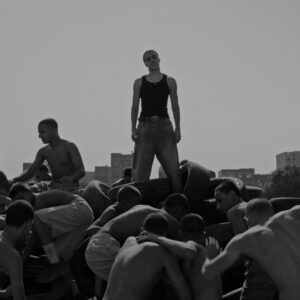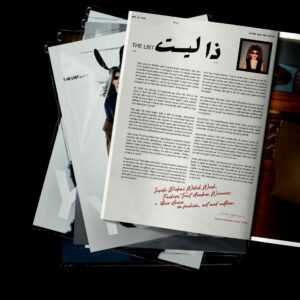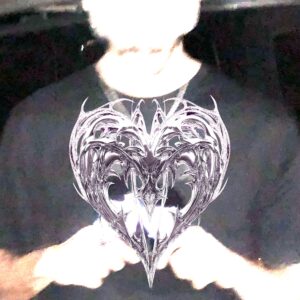Earlier last year, amid the escalating violence in Gaza, news began circulating about a collective of artists who had taken it upon themselves to build a music studio and small label, only to see it destroyed in the strikes that followed. From conversations with friends in Palestine and murmurs within the music scene, the name Adam Ghanim (Instagram) began to surface. Ghanim, a producer and the founder of Manjam, Gaza’s first record label, was now in Egypt, working to reestablish his footing in an industry as complex as it was crucial to his message. Making a mental note, I knew I wanted to hear his story firsthand.
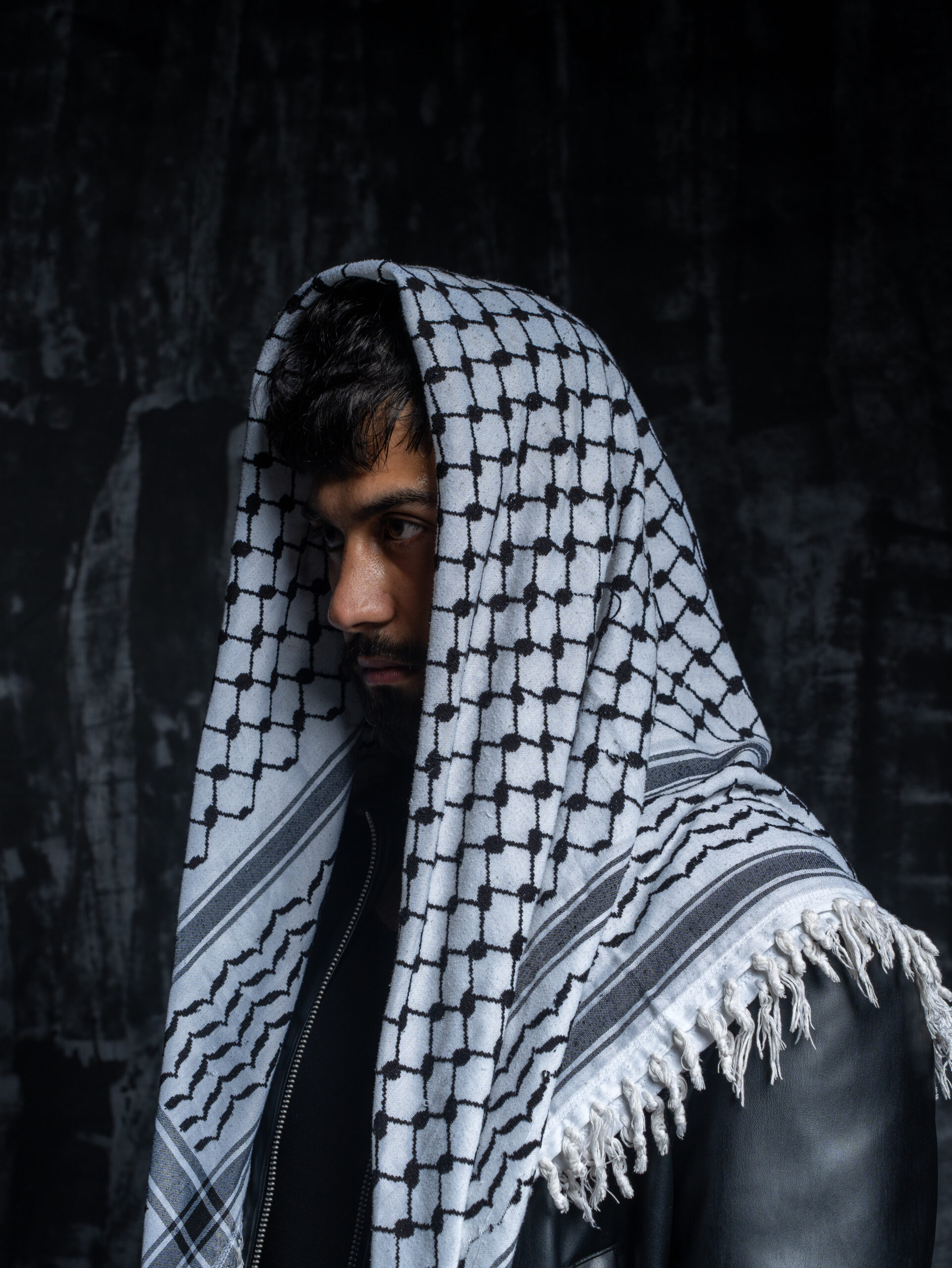
Months later, I attended Saint Levant’s intimate listening session for his album DEIRA in Cairo, a gathering that included a handful of voices in Palestinian music, like Zuhod, Raouf Belbeisi, MC Abdul, and Shamaly, a rising artist who quickly became a focal point in the evening’s lineup. It was there, almost by coincidence, that I met Adam Ghanim in person, accompanied by Shamaly (Instagram). This was the Ghanim I’d been hearing about, and it felt serendipitous that our paths crossed here, in Cairo, where both of us were piecing together different aspects of the region’s creative landscape. That night introduced me to both their journeys and Shamaly’s music, particularly Bdl Faqed, an artistic feat that documented the stark realities of Gaza.
Ghanim is a fellow of Saint Levant’s 2048 Foundation, which funds and supports Palestinian creative projects, including Manjam (Arabic for “The Mine”). True to its name, Manjam represents a commitment to excavating the unseen talent in Gaza and beyond, giving artists the space and resources to share their experiences. Ghanim spent three years producing music in Gaza, connecting with artists like Shamaly who, despite their talent, could rarely extend their work beyond the walls of their studios. The conflict only reinforced their resolve to persist, and Bdl Faqed is the culmination of that resolve.
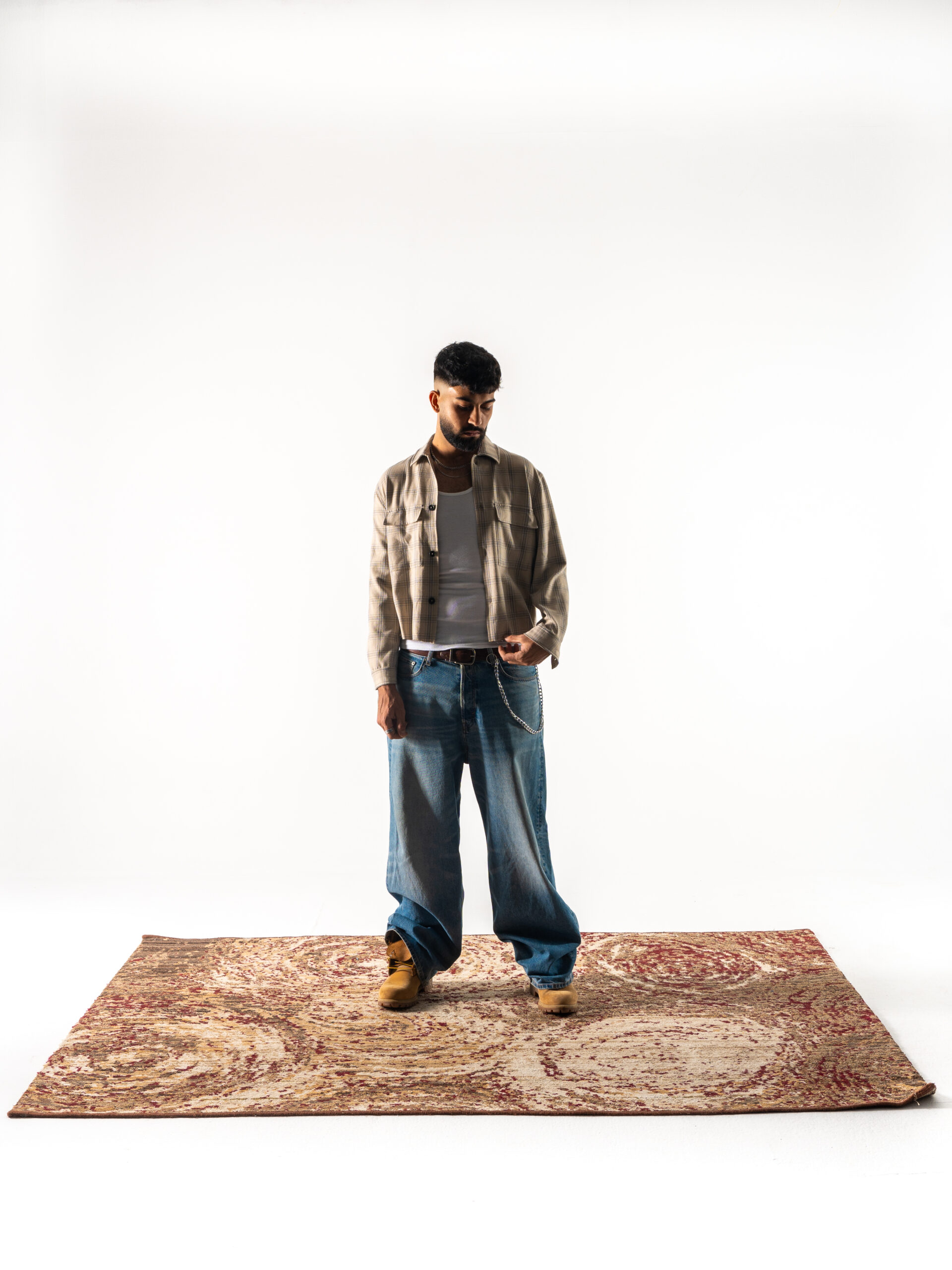
Shamaly, 23, is a rapper and songwriter who, though originally from Jaffa, grew up in Gaza. He began writing music at 17 and captured life’s dualities in Gaza—hope and struggle, joy and loss—into music. Bdl Faqed (loosely, “Replacement of the Lost”) is an account of five intense months during the Gaza conflict, documenting day-to-day life in a way that resists the sanitized portrayals often seen on social media. It captures mundane struggles—finding food, meeting with friends, and family pressures—layered with the constant backdrop of survival. The music has a bare, unpolished quality and each song carries the weight of the spaces it was created in: studios in Gaza, refugee shelters, and eventually Cairo.
The EP’s four tracks each reflect a specific phase of life in Gaza and the psychological and emotional spectrum endured during the war. Songs composed before the conflict reveal hope for change, capturing a younger generation’s efforts to overcome a restricted reality. But as the conflict escalates, the music takes a more somber turn, as heard in songs written while Shamaly sheltered in Rafah, where even love songs reflect the complexities of lives shaped by instability. When the music finally emerges from Gaza and reaches Cairo, the lyrics reflect both a sense of loss and a determination to redefine those experiences into something enduring.
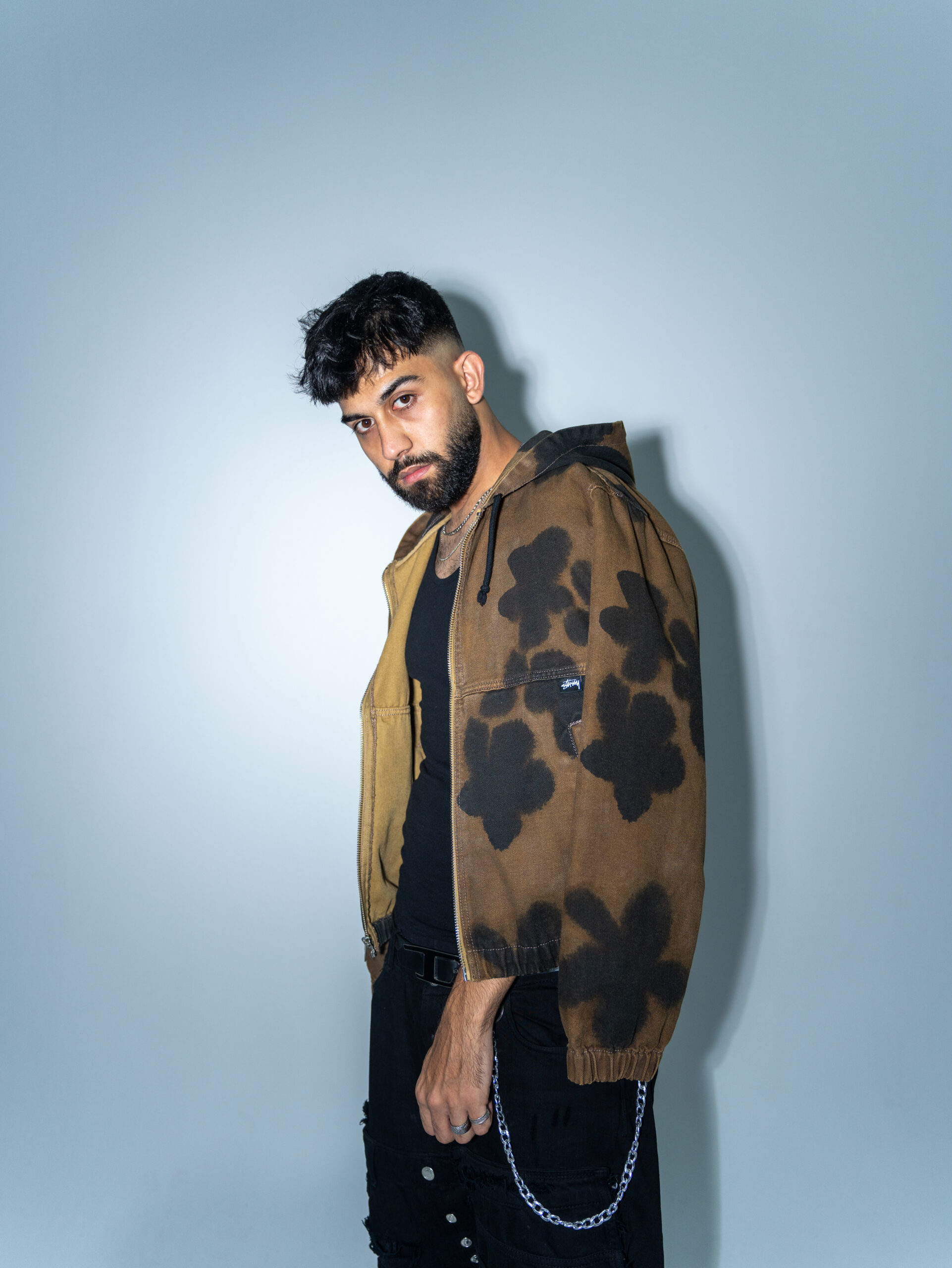
“Sa7” captures a pre-war moment, a vision of hope woven into Shamaly’s reflections on daily life in Gaza. It’s a track that reveals Shamaly’s optimism as he grapples with the difficult environment. The beat here is subdued, almost like a quiet anthem, with lyrics that subtly critique the societal limitations on Gaza’s youth.
“Bastana Feek” was the first song Shamaly wrote during the war, while taking refuge in Rafah. The title translates to “Waiting for You,” and, though a love song, it carries the weight of life amid uncertainty. The liquid D&B beat is surprisingly gentle, emphasizing moments of calm amid chaos. The song channels the intimacy of a bond formed in crisis, illustrating the emotional landscape of finding personal connection when the world outside is fractured.
“Falatan” was written as Shamaly watched Khan Younis burn from a shelter in Rafah. This track captured the intensity of war as he experienced it firsthand. The soundscape here is both tense and pensive, as Shamaly wrestles with the psychological toll of witnessing destruction. The lyrics offer no sensationalism, instead conveying the heaviness of the moment with stark clarity.
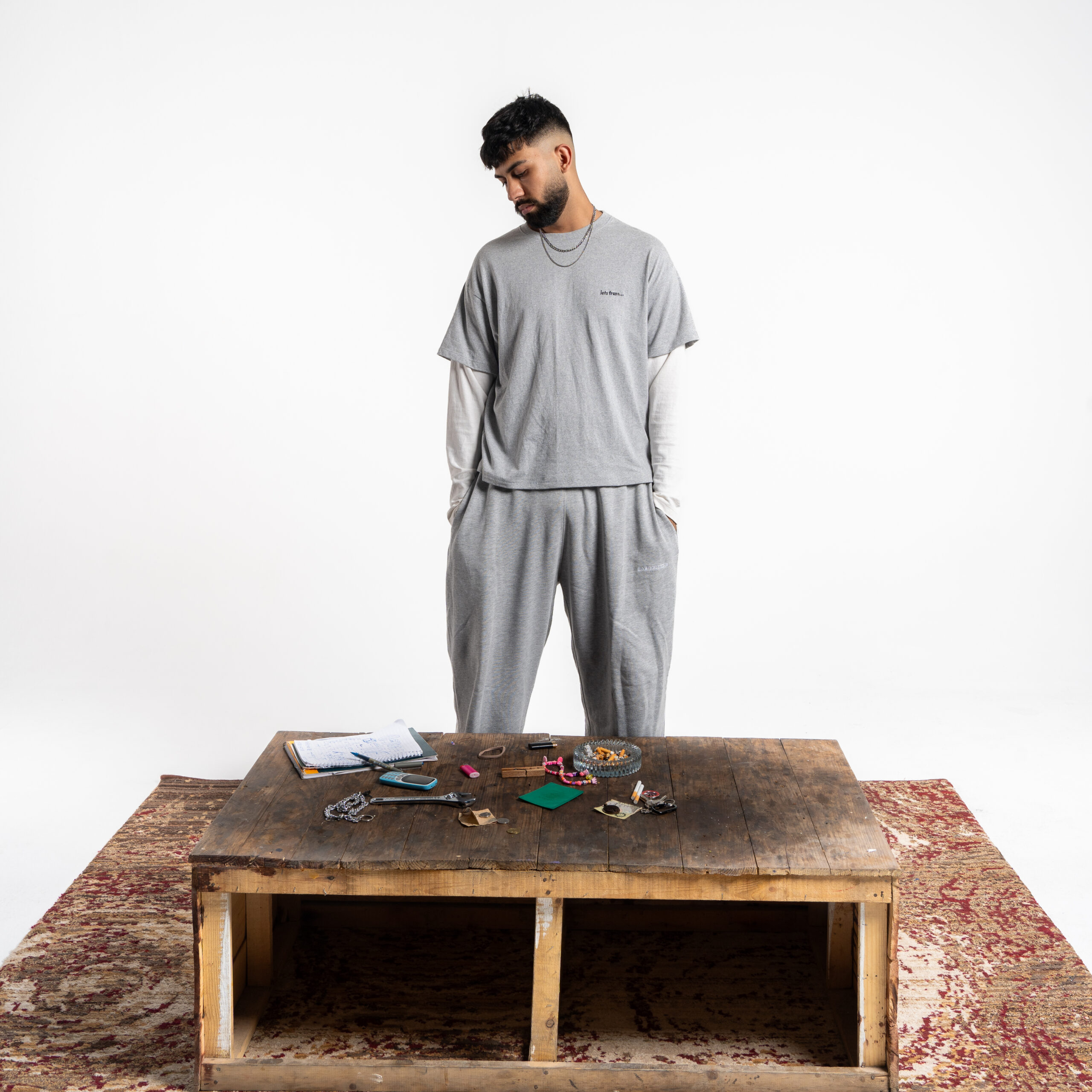
“Ta5” chronicles Shamaly’s departure from Gaza to Cairo, a departure that is both a relief and a deep conflict. This track captures the sounds and memories that linger—of fire, bombs, and unrest—and how they continue to shape his perceptions. The beat has an almost hypnotic quality, mirroring the reflective nature of the lyrics as Shamaly processes the turmoil he left behind, yet finds himself forever marked by it.
Though composed in varying circumstances, the EP was produced and recorded in Cairo, where Ghanim and Shamaly worked tirelessly to preserve its essence. Clocking in at just under ten minutes, Bdl Faqed challenges audiences to see Gaza’s youth beyond headlines or statistics.
For more stories like this of Adam Ghanim and Shamaly, check out our dedicated music coverage here.
